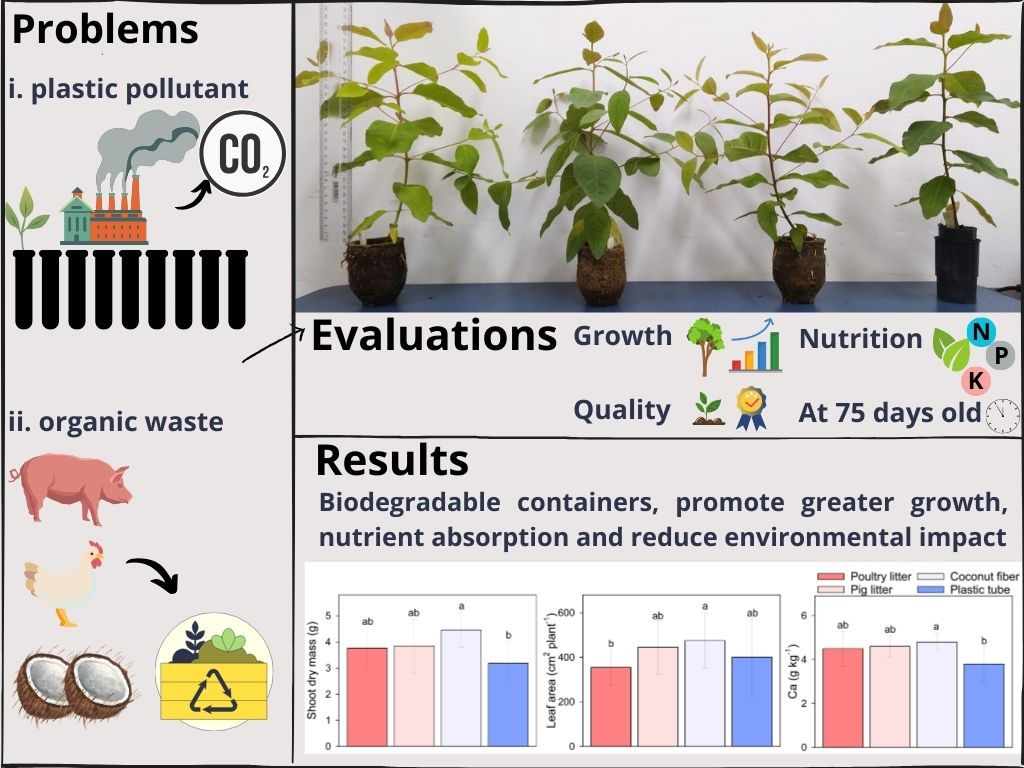Rev. Bras. Ciênc. Solo.2025;49:e0240216.
Biodegradable containers affect the morphological and nutritional aspects of Eucalyptus urophylla seedlings
16/jun/2025
DOI: 10.36783/18069657rbcs20240216
Resumo Gráfico

Destaques
Biodegradable containers enhance root growth and seedling quality in Eucalyptus spp.
Organic waste use increases dry mass and nutrient absorption in Eucalyptus seedlings
Biodegradable containers outperform plastic tubes in E. urophylla seedling growth
Organic waste-based containers improve morphological and nutritional seedling
ABSTRACT
Forest seedlings production generally uses polypropylene plastic tubes due to their advantages, as root protection and easy operation. However, these tubes have limitations, as small substrate accommodates capacity, there is a possibility of root deformation, and there is a composition of pollutant and non–renewable material. It is necessary to find environmentally correct alternatives. This study aimed to evaluate the morphological and nutritional aspects of Eucalyptus urophylla seedlings produced in biodegradable containers, compared to plastic polypropylene tubes. For this, seedlings were produced in different containers/treatments (plastic tube, pig and poultry litter, and coconut fiber) in a greenhouse for 75 days. The analysis included height, collar diameter, length, and number of principal root ramification, leaves, stem and roots dry matter, number of leaves, leaf area, chlorophyll a and b, and N, P, K, Ca, and Mg concentration in leaves. Experiment design was conducted completely randomized with 24 replications, with each plant a sampling unit. Dickson quality index (DQI) and relationships between dry matter fractions and height and diameter were calculated. E. urophylla seedlings production in biodegradable containers, especially coconut fiber, promoted greater growth compared to plastic tubes, especially larger leaves and stem dry mass, and shoot and roots dry mass ratio. This favored root development and leaf area, increasing nutrient absorption and photosynthetic efficiency. Despite seedlings in plastic tubes having greater chlorophyll, N, and Mg concentrations, the biodegradable containers provided adequate P, K, and Ca concentrations, which are essential for development. A positive correlation between collar diameter, dry mass, and leaf area with DQI confirms that biodegradable containers are an effective alternative for producing Eucalyptus spp. seedlings.
156
